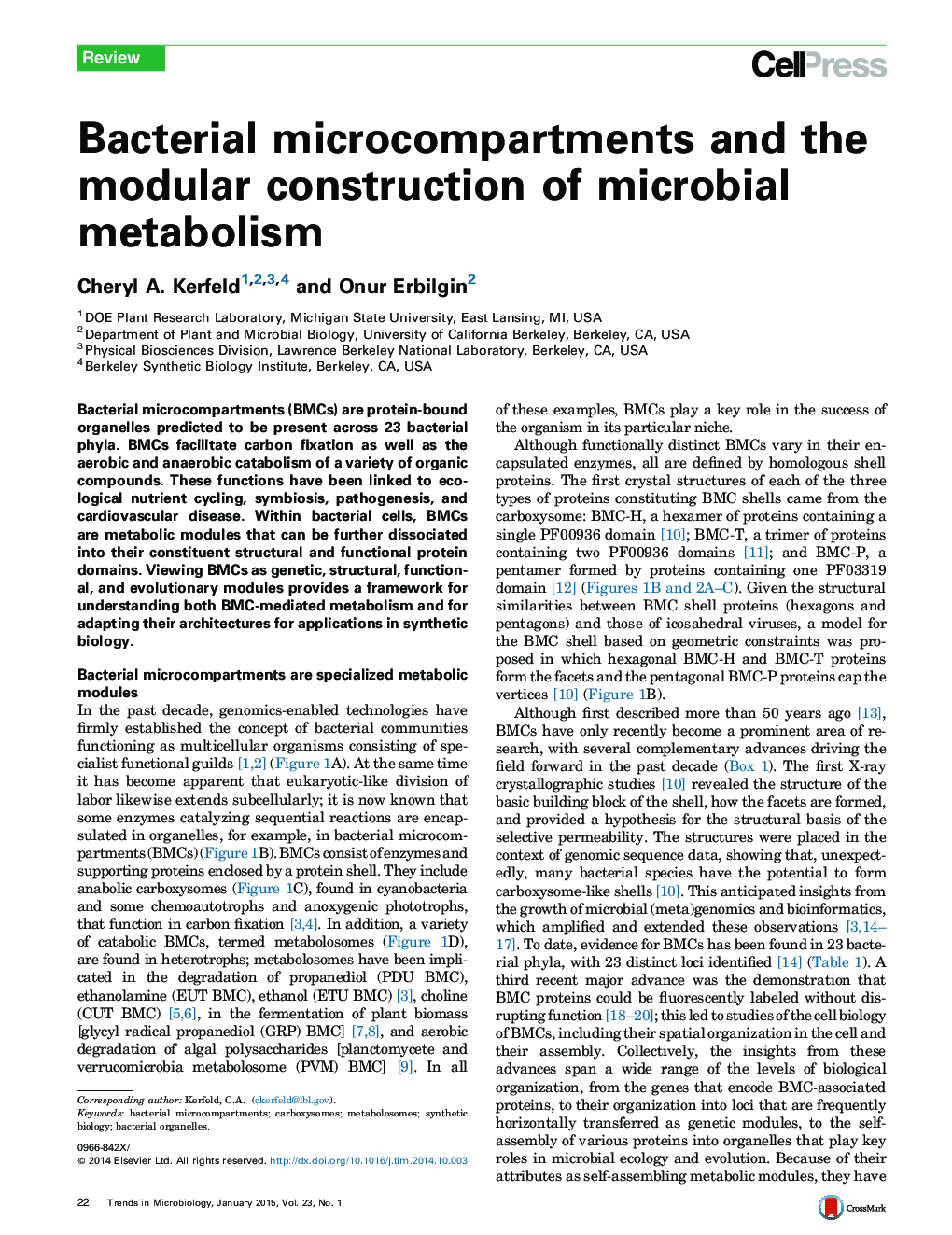| Article ID | Journal | Published Year | Pages | File Type |
|---|---|---|---|---|
| 3421897 | Trends in Microbiology | 2015 | 13 Pages |
•Bacterial microcompartments (BMCs) can be considered genetic, metabolic, structural, and evolutionary modules.•Specialist BMCs help define the role of host bacteria in an ecosystem.•Their structural and functional modularity can be harnessed to engineer bespoke BMCs.
Bacterial microcompartments (BMCs) are protein-bound organelles predicted to be present across 23 bacterial phyla. BMCs facilitate carbon fixation as well as the aerobic and anaerobic catabolism of a variety of organic compounds. These functions have been linked to ecological nutrient cycling, symbiosis, pathogenesis, and cardiovascular disease. Within bacterial cells, BMCs are metabolic modules that can be further dissociated into their constituent structural and functional protein domains. Viewing BMCs as genetic, structural, functional, and evolutionary modules provides a framework for understanding both BMC-mediated metabolism and for adapting their architectures for applications in synthetic biology.
